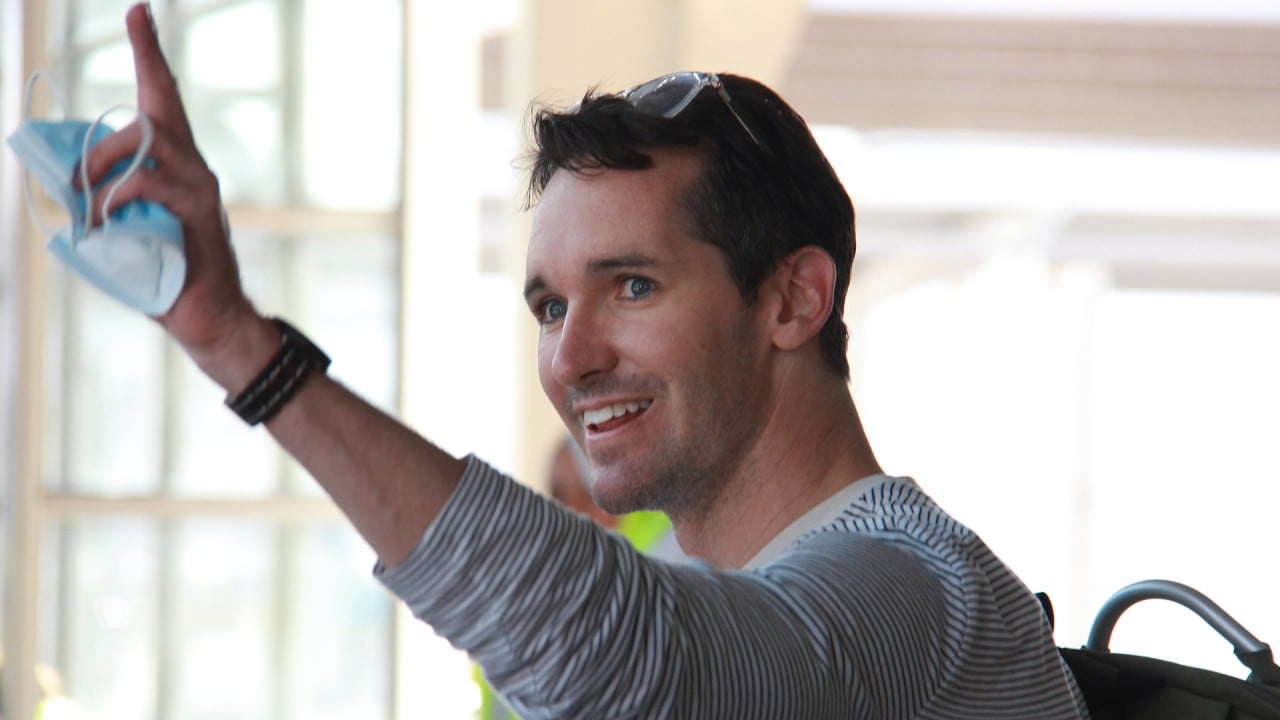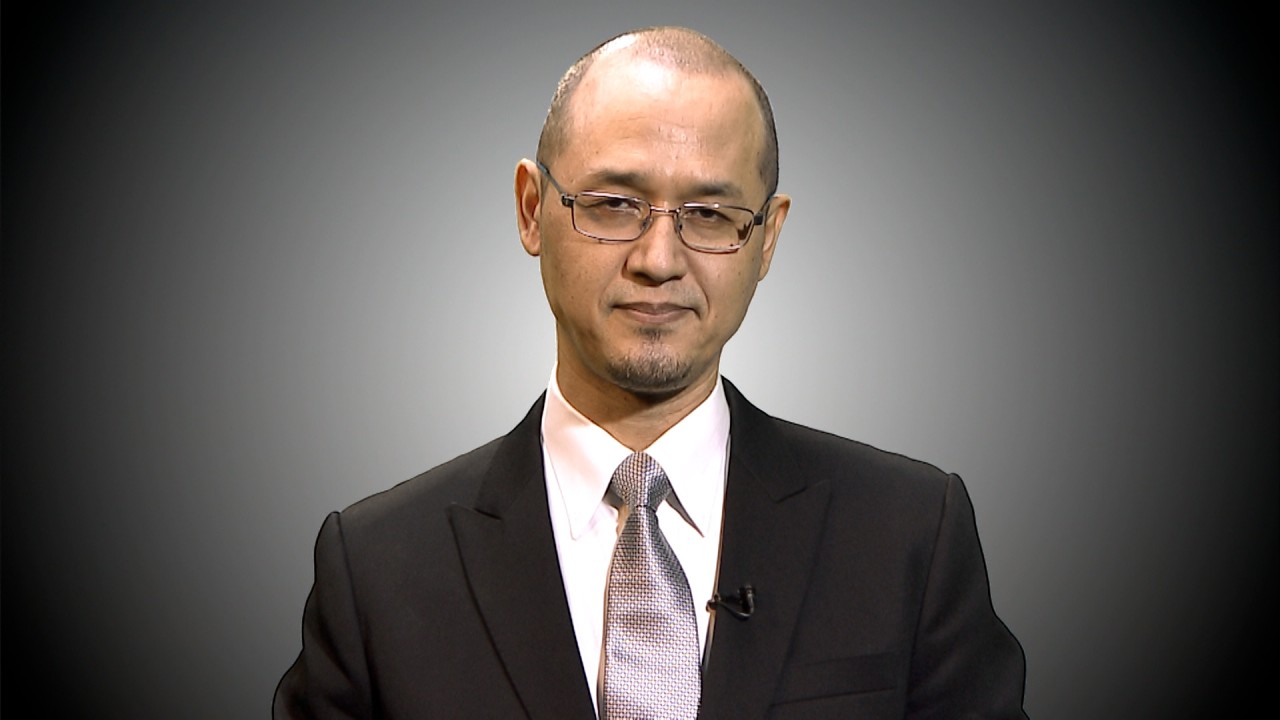
Australian PM criticised for not directly condemning Senator who asked Chinese-Australians to denounce CCP
- Asian-Australians have asked why Scott Morrison did not issue a stronger response to his party colleague Eric Abetz’s ‘McCarthyist racism’
- The opposition said an apology was necessary and if it did not come from Abetz, the government should step in and ‘stand up for an inclusive community’
Morrison on Friday was asked about Senator Eric Abetz’s line of questioning of Australians Osmond Chiu, Wesa Chau and Jiang Yun at a Foreign Affairs, Defence and Trade public inquiry earlier in the week, and if denouncing the Chinese Communist Party was a pledge foreign-born Australians must make.
Said Morrison: “There is only one pledge that any Australian citizen should take and that’s the pledge they take when they become an Australian citizen.”
Asked what he made of Abetz’s question, he did not respond directly but only said “the normal practices should be observed”.
The prime minister’s spokesman on Saturday told This Week in Asia that while Morrison did not directly condemn his party colleague’s actions, he “contradicted” Abetz’s approach.
Standing firm against ugly dictatorships is everyone’s duty. I, therefore, make no apology for the exchange between Mr Chiu and myself yesterday
“It’s not a difficult question,” the German-born senator said at the inquiry while directing most of his questions on national loyalties to Chiu, a research fellow at think tank Per Capita, who was born in Australia. Jiang is a researcher and commentator on Australia-China relations and Chau is a Deputy Lord Mayor candidate for the City of Melbourne. Both migrated to Australia as children.
Former Australian race discrimination commissioner Tim Soutphommasane expressed his disappointment on social media, saying the “targeting of Chinese-Australians is doing serious damage to our political culture”.
“How deeply disappointing that the PM sees nothing wrong with McCarthyist racism,” he said. “No one in our society should have their loyalty and allegiance placed under suspicion because of their heritage.”

McCarthyism – which refers to the American era in the late 1940s and 1950s when individuals were accused, without evidence, of treason or subversion, usually relating to their alleged membership in the Communist Party – is on the rise in Australia.
Analysts say several mainstream media outlets and groups – including the Australia Strategic Policy Institute, a think tank partly funded by Australia’s Department of Defence, the US State Department and Britain’s Foreign and Commonwealth Office – are pushing an anti-China campaign.
Abetz, who is from Morrison’s Liberal Party, on Friday refused to apologise even as a petition demanding he do so made the rounds online.
Ex-PM Rudd among critics of senator who questioned Chinese-Australians’ loyalty
“Australia is a democracy where every citizen is equal. These are fundamental Australian values that senators have a responsibility to protect and promote,” said Wong, who is also Senate leader of the Labour Party.
“In a world where authoritarianism and nationalism are rising, we cannot afford to be complacent about safeguarding our democracy and we cannot allow any ethnic groups to be targeted.”

03:39
Australia’s last two accredited journalists in mainland China evacuated as diplomatic ties worsen
Giles said that if Abetz would not apologise, Morrison and his acting minister for multicultural affairs, Alan Tudge, must step in and “stand up for an inclusive community, in which everyone is afforded respect, not suspicion”.
Abetz, whose great-uncle was Adolf Hitler’s ambassador in occupied France and was later convicted as a Nazi war criminal, had previously condemned the press for attempting to attack him on the basis of his ancestry. His brother, West Australian MP Peter Abetz, has twice said publicly that his great-uncle had done “positive things”.
“Standing firm against ugly dictatorships is everyone’s duty. I, therefore, make no apology for the exchange between Mr Chiu and myself yesterday,” Abetz said in a statement on Thursday.
“Chinese-Australians look for leadership by prominent Chinese-Australians but often receive meaningless platitudes instead.”
Australian state premier had secret relationship with China-linked former MP
The developments come as Asian-Australians have increasingly been cast in a negative light by Australian media – particularly by the Rupert Murdoch-run News Corp and the Nine Network publications – insinuating that Chinese-Australians have links to the Chinese Communist Party (CCP) by using photos of their attendance at community functions or pointing to their efforts to send masks to China at the outbreak of the Covid-19 crisis.
In June, the Australian government raided the home of New South Wales state legislator Shaoquett Moselmane over suspected links to the CCP. Moselmane has since been cleared of being involved in foreign interference efforts. The homes of Chinese journalists in Australia were also raided at the same time.

03:24
Are Australians really unsafe in Hong Kong?
Just before that, China Matters, a think tank that supports a discussion about engagement and boasts many prominent Australian advisers, was also slurred, with News Corp running stories accusing it of “lobbying against Australia’s national interests”.
John Menadue, who served as secretary of Australia‘s Department of Prime Minister and Cabinet between 1974 and 1976 said the Australian intelligence agency (ASIO) has also been egging on the anti-China sentiment.
“In an abuse of power, ASIO and its collaborators have been campaigning overtly and covertly to force change in Government policy towards China. They are succeeding,” Menadue said on his public policy website.
Australia shifts tack with response to China coal import ban
“More and more untested ‘intelligence ‘is going straight to Ministers, senior officials and the media. The collection agencies like ASIO and ASIS are now in the front line, briefing and leaking to the media.”
Wanning Sun, a University of Technology Sydney professor who was due to face the same public inquiry as the three other Chinese-Australians, has since told the local press she was pulling out, saying she had no intention of putting herself on trial.
“I have been an Australian citizen for more than 30 years, and I’m aware of my rights and responsibilities. If our prime minister and foreign minister do not officially and publicly condemn the Chinese Communist Party for fear of jeopardising Australia’s trade relationships with China, why should ordinary Australians be expected to do so?” she said.

